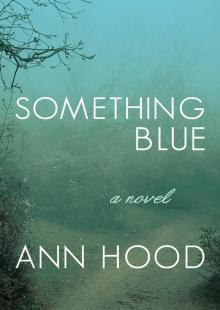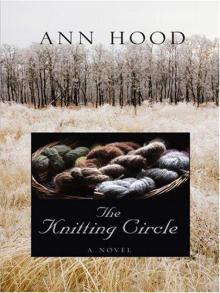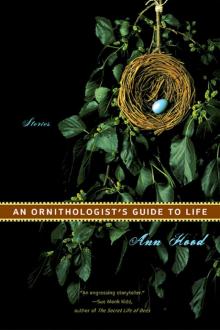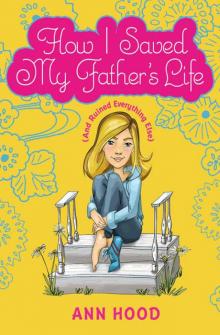The Red Thread Read online
Page 13
“Did you have a crisis of conscience?” he whispered to her as he unbuttoned that damn white shirt of hers.
“My husband is sailing today. That cleared any lingering doubts,” she said.
Theo slid his hand up her thigh and discovered that those black stockings were held up by a garter belt, not unlike what Anne Bancroft might wear.
“Is he sailing around the world?” Theo managed.
“Who cares?” Nell said, dropping to her knees and unzipping his pants.
LATER, THEO FOUND himself climbing the stairs to his apartment, half drunk from all those martinis and the sky already growing dark. He should have been home hours ago. Or called Sophie. But how could he do that when he and Nell had spent the entire afternoon together in that hotel room? What could he have said? What would he say when he opened that door and saw Sophie’s wounded face, maybe even tears?
Without an excuse or a plan, Theo opened the door.
The apartment was empty and dark. Relieved, he stepped inside. He would have time to shower, to think. He would surprise Sophie and make dinner, the stir-fry he did that she liked so much. He would use Thai curry sauce, and his wife would think he was being romantic instead of guilty. Theo flipped on the lights as he moved through the living room. With each step, he felt more lighthearted. Maybe he even had time to run out and get a bottle of wine before Sophie came home.
In the kitchen, he took out the wok and began placing vegetables on the counter. Red peppers. Onions. Snap peas.
“What are you doing?”
His wife’s voice startled him enough to make him jump slightly.
“You were here?” Theo said. “In the dark?”
Sophie was frowning at him, and studying him too carefully. “I was here,” she said. “Where were you?”
“Going over lesson plans with—”
“Downtown?”
Theo considered the possibilities. Even if she had seen him downtown, she had not seen him with Nell. “Yeah,” he said. “At Tazza,” he added, grateful that he knew the name of the café there.
“You had your cell phone turned off,” she said.
“I did?” Theo shrugged. He held up a pepper. “Guess what I’m making for dinner?”
“All afternoon,” she said, “I couldn’t reach you.”
Theo concentrated on the vegetables, on chopping them into even-sized squares. “Sorry,” he said.
“So you were at Tazza going over lesson plans?”
Theo thought of Nell. Her long legs and arms. Her perfume. “Why the Inquisition?” he said. He opened the freezer to see if they had any chicken. They didn’t. Vegetarian stir-fry, then.
Sophie didn’t answer him. But she didn’t stop staring at him either.
“You got a FedEx package,” she said finally.
Theo glanced at the basket where they put all the mail. On top sat an envelope—Priority Mail, not FedEx, he noticed. The handwriting looked familiar. He put down the knife and picked up the envelope.
“What is it?” Sophie was asking.
“From an old college friend,” Theo said.
He put the envelope out of Sophie’s reach and went back to chopping vegetables. There was only one reason he could think of for Heather to have written to him, and he wasn’t about to tell Sophie what that was.
HE CHOSE Blue State to meet Heather because Sophie never went there. Ever since that envelope had arrived, Sophie had been watching everything he did too closely. Or maybe she had started doing that sooner? At any rate, he couldn’t risk Sophie finding out that Heather was in town. He wasn’t up for the barrage of questions that would follow. He wasn’t up for more lying.
Theo walked into Blue State, his eyes pausing over each person until they settled on a tall woman with blond hair piled messily on top of her head, a garnet-colored wraparound jersey skirt and a black scoop-necked Danskin top.
Theo’s first thought was: Oh! Heather got a tattoo. A pink rose climbed up the inside of her leg, from ankle to calf.
Then it sunk in. Heather—his Heather!—was sitting right in front of him.
Theo went to her, and she got up slowly, opening her arms. When they hugged, Theo realized she felt exactly the same as he remembered.
“Wow,” he said foolishly after she extricated herself from his arms. He did not want to let her go. “Heather.”
That envelope had been full of pictures. He supposed he should say something about them, but he couldn’t think straight.
“Wow,” Theo said again.
Heather smiled. “Ever the wordsmith,” she said, and sat back down.
Theo sat across from her.
Heather was talking about how she was a choreographer, and about the show she was doing in Boston. “But that was all in the letter,” she said, shaking her head.
Theo nodded. Maybe we can meet? she’d written. Maybe we can finally talk about this? But he didn’t talk about it. Instead he said, “Sounds exciting. More exciting than teaching businessmen to speak Thai.”
“You speak Thai?” she said. She shook her head again, almost sadly, Theo thought. He felt sad too. They were strangers.
Heather started talking again, about San Francisco, where she lived now. And how hard it had been to find him. She was leaving soon, she said. This was the end of the five weeks.
Nod. Nod. Grin.
He willed himself to say something witty or charming or important, but he couldn’t come up with one single thing.
“And I thought we needed to talk,” Heather was saying. She bent and opened the large bag at her feet. She always carried enormous bags.
What he hoped was that Heather was not about to pull out pictures of a child. Hadn’t the ones she sent been enough? But she did take out even more photographs and she spread them across the table so that it was impossible not to look at them.
“I thought we should talk about Rose. That you deserved to know everything,” Heather said. She was holding a few of the pictures out to him.
Theo took them.
“So,” Heather said, taking a breath, “as we decided, I gave her up for adoption. I even got to pick the parents. I studied all of these portfolios and I picked this couple in San Francisco. You would like them, Theo. He’s a translator and she’s an actress.”
Theo was staring hard at the photographs on his lap. A little girl who looked just like Heather, but with Theo’s bedroom eyes, stared back at him.
“They let me name her,” Heather said.
Theo looked down at the pink rose climbing Heather’s leg.
“They were with me when she was born. And they send me pictures every year on her birthday and at Christmas. I can even visit her, but it was too painful. I tried once.”
“She’s beautiful,” Theo said.
He could smell that silly Love’s Baby Soft wafting from her skin. He remembered how much he had loved her, how they’d had their whole lives ahead of them. Their little apartment with sloped ceilings and a hot plate and a cat they named Twinkle. Her ballet barre stretched across one entire wall and from bed he could watch her there, stretching, the beautiful arches of her feet reaching upward.
When she found out she was pregnant, she was excited. But he wasn’t. He didn’t want a baby yet. But we’ll just get married and have a baby, she’d said. He remembered that look of betrayal on her face when he said no. He didn’t want to do that. Not yet. For weeks in that small apartment they’d fought. Until she agreed to give the baby up for adoption. “But then we’re over,” she’d said. “I will never forgive you.”
He should have fought harder for her, for them. He should have kept this beautiful little girl grinning at him.
But instead, he left.
He didn’t even stay long enough to be with Heather when the baby was born. He got a message in Bangkok. It’s a girl. Healthy. Don’t try to reach me. I just thought you should know.
“She looks like you,” Theo said.
When he finally looked over at Heather, he saw that she was
crying.
“They promised me she’d take dance,” she said. She lifted a picture from the table. Rose in a white tutu, bowing.
“That’s good,” he said.
There were so many things he wanted to do: Take Heather in his arms. Fly to San Francisco and take their daughter home. So many things.
“These are for you,” Heather was saying. She was getting to her feet, preparing to go. “They’re copies. If you want, I can send you more. When I get them.”
“Yes,” Theo said.
“Are you going to do something?” Heather said.
Theo stood too. “You’ve lived with this. With her—”
“So have you,” Heather said. “You just pretended it didn’t happen. I think about her every day. All the time.”
Theo was aware of someone else standing at the table.
“Shit,” he said. “You never come here. What are you doing here?”
Sophie looked like someone he did not know. “I followed you,” she said. “I knew you were up to something.”
“I’m not up to something,” Theo said. He motioned toward Heather, but Sophie was looking at the pictures now.
“You have a child,” Sophie said.
“I meant to tell you,” he began.
“When? We’ve been together five years. When were you going to tell me this small detail?”
Theo shook his head. “It was so long ago,” he said.
“I don’t know what I’m going to do,” Sophie said. It was less a threat than a real problem.
“It was so long ago,” Theo said again.
“Could you go away?” Sophie was saying to Heather. “Could you leave us alone?”
“I am so sorry,” Heather said.
Theo grabbed her arm, but she shook his hand off her.
He walked her to the door, wanting somehow to keep her there. But she wasn’t his. She would send pictures as she received them, she promised. Theo watched her walk away. He knew nothing about her. Was she married? Did she have other children? She had told him nothing.
Sophie burst out the door and he followed her. “You had a baby with the love of your life,” she said, “and you can erase what that means by saying it was a long time ago? You abandoned her. You lied to me—”
“When did I lie? I didn’t lie.”
“Haven’t you ever heard of a lie of omission?”
“I didn’t tell you. I’m sorry,” Theo said.
“I’m the one who’s sorry!” Sophie screamed at him. “Sorry I ever laid on eyes on you. Sorry—” She didn’t finish. Her face crumpled and she began to sob.
Theo moved toward her to comfort her.
But Sophie looked at him, her eyes wild.
“Don’t,” she said.
Theo watched her as she collected herself, taking deep breaths, her face growing more resolute. He watched her turn from him and walk slowly away.
“Sophie!” he called after her. “Sophie!”
She kept walking down Thayer Street, even though he was confident she heard him.
9
MAYA
Maya dreamed of Italy, a country she had never visited. She fell from Mount Vesuvius to a sparkling Bay of Naples below. She tumbled down stone steps, steep hills, hotel balconies. But in the morning, she walked steadily down Wickenden Street to her office. She put on a pot of coffee. She opened the blinds and let the September sun in. With the coffee ready—too strong and almost bitter, the way she liked it—Maya sat at her computer and scanned her inbox.
When she saw his name, all of her dreams, the falling from dizzying unstoppable heights, came to her so strongly that even sitting down, she had the feeling of plunging. If she deleted this email, then she could return to the safety of silence she’d maintained these years. What would reading this email from her ex-husband do except open old wounds?
True, she had found him. He was happily living his life with a new wife, a new daughter. Even thinking this forced Maya to grab onto the edge of her desk and hold on too tightly. It was her daughter’s face that appeared as she thought this. Their daughter’s face.
Maya clutched the desk and squeezed her eyes shut, but that sense of falling did not go away. She heard Samantha arrive, the front door slam shut. That woman did not know how to close a door. She just let it go so that it always slammed loudly. The phone rang and Samantha’s voice filled the office. When Maya opened her eyes, the lights on the telephone flashed. People on hold. People leaving messages. All of them wanting babies.
An email from Jack popped up, and Maya clicked on it.
Just checking in, it said. And thinking about you.
An email from Nell Walker-Adams was below it with the subject line: PLEASE CHECK OUR PLACE IN THE QUEUE!
“Your husband is going to leave you and sail around the world!” Maya shouted at the computer.
She took a deep breath. She scrolled past Nell Walker-Adams and all of the inquiries about the adoption process until she landed on Adam’s. Maya exhaled and opened the email.
Her eyes scanned the screen, but she couldn’t take it all in. He was surprised to hear from her. His wife was named Carly. They had a baby.
Is it forgiveness you want? Adam wrote at the end. Aren’t we past that?
Forgiveness.
That hadn’t occurred to her. How could he forgive the unforgivable? She had killed their daughter. Their beautiful daughter. She had left him without looking back. Maya had no idea how he had moved from that rainy lanai in Honolulu to a new family, the Bay of Naples, a life.
Forgiveness? Maya typed. No. Not that. But maybe closure?
She sent it, even though she hated the word closure. Even though she knew that in matters of grief, there was no such thing.
Almost immediately, a reply appeared from Adam. It was midafternoon in Italy. Maya tried to imagine him in an office somewhere, the bay glittering outside his window, a picture of his wife and daughter smiling back at him.
I’ll be back in Santa Barbara the first of June. If it would help you to meet, then I am willing to do that.
Maya flipped open her date book to June. The June orientation was on the fourth.
I can be in California on June 5, she wrote.
Then she added, Thank you.
Maya stared at the screen, waiting for his answer.
Other emails dropped in. Nell Walker-Adams sent a second one, the subject line more emphatic this time: WHAT IS OUR PLACE IN THE QUEUE???
Was he calling his wife? Asking her if it was all right to talk to Maya? Was he changing his mind?
Ten minutes. Twenty. Samantha’s voice.
Until finally an answer.
Someone came in the office. Sorry about that! Send me your travel plans and we will work out a time and place to meet.
Maya read it twice before sending back a simple thank-you.
In black ink she wrote CALIFORNIA across the week of June 5.
Then she stood, expecting the floor to sway beneath her. But oddly, it did not. She let go of the edge of the desk and stood in her noisy office. Faxes arrived. Those telephones kept ringing.
Maya opened the bottom desk drawer. From under her senseless knitting, the yards of neat pink rows, she took out a document that was ready to send to China. She placed it in the FedEx box with the others. Emily and Michael’s. Sophie and Theo’s. Nell and Benjamin’s. Susannah and Carter’s. Charlie and Brooke’s.
It was September 24. The day all of these documents would go to China. Now, the families had nothing more to do but wait. Maya lifted the box and carried it out to Samantha.
“They’re all set?” Samantha said. Her lipstick was a strange orange that clashed badly with her skin. A rhinestone brooch glittered off her tangerine sweater.
“All set,” Maya said.
Instead of going back into her office, Maya watched as Samantha stamped the date on each envelope.
Samantha glanced at Maya, frowning. “Something wrong?” she asked, the stamp smeared with red ink poised over a
large white envelope.
Maya shook her head. “Just wondering. Who will change her mind? Who will find happiness?”
“Uh-huh,” Samantha said. She waited for Maya to continue, but when she didn’t, Samantha returned to stamping.
“Where are those babies now?” Maya said softly. “All those beautiful babies.”
Samantha paused again. She chewed her orange bottom lip. The phone rang and she answered it. “The Red Thread Adoption Agency,” Samantha said.
Maya watched the final envelope get its red stamp: September 24. Documents to China.
Hunan, China
CHEN CHEN
“It is bad luck,” her mother-in-law said.
Her round face loomed too close to Chen Chen’s, so close she could smell the pickled cabbage on the old woman’s face. To wrinkle her nose would show disrespect, so Chen Chen tried to keep her expression blank. She breathed through her mouth instead of her nose, the way she did when the stink from the tire factory filled the air and made her gag.
Chen Chen lay as still as possible. This showed calm to her mother-in-law, but it also made her more comfortable. Until a few days ago, her pregnancy had been as smooth as polished jade. No morning sickness, even when the tire factory worked overtime and Changsha’s air grew dense with smoke and stench. Her friend Ming who worked beside her there threw up into a small paper bag, her face pale, her eyes sunk back into their sockets.
But Chen Chen remained robust. She craved the spiciest food her mother-in-law could cook, then doused it with extra chiles and hot sauce. Her complexion was clear; neighbors whispered that she had the healthy glow of a woman carrying a son. At night, she reached for her husband with an almost desperate desire, climbing on him and riding him with an abandon she had not felt in the four years of their marriage. “Who is this crazy woman?” he would whisper afterward, stroking her sweaty hair, both of them stunned by this newfound passion.
“Pregnancy agrees with Chen Chen,” her mother-in-law announced at every opportunity, gloating as she said it. “Yes,” her husband would say, unable to meet Chen Chen’s eyes. Her newly awakened libido embarrassed and stunned him.
Before she got pregnant, Chen Chen was pleased with their methodical, quiet lovemaking. She liked the familiarity of it, the way her husband moved his hands across her body the same way he moved his pencil down a line of figures. He was an accountant for the tire factory, carrying large black books everywhere he went, peering through his round wire-rimmed glasses at columns and numbers. That was how they made love: he peered at her, moved from mouth to neck to breasts with his long graceful fingers. Then, as if he were adding up the totals, one fingers tapped at her, checking that she was ready. He climbed on top then, and finished the calculations. Somehow, that had pleased Chen Chen, making her husband happy that way, having all the numbers add up just right.

 Kitchen Yarns
Kitchen Yarns Waiting to Vanish
Waiting to Vanish Morningstar
Morningstar Something Blue
Something Blue Providence Noir
Providence Noir Somewhere Off the Coast of Maine
Somewhere Off the Coast of Maine Jewel of the East
Jewel of the East Queen Liliuokalani: Royal Prisoner
Queen Liliuokalani: Royal Prisoner The Knitting Circle
The Knitting Circle Leonardo da Vinci: Renaissance Master
Leonardo da Vinci: Renaissance Master An Ornithologist's Guide to Life
An Ornithologist's Guide to Life The Red Thread
The Red Thread She Loves You (Yeah, Yeah, Yeah)
She Loves You (Yeah, Yeah, Yeah) Brave Warrior
Brave Warrior How I Saved My Father's Life (and Ruined Everything Else)
How I Saved My Father's Life (and Ruined Everything Else) An Italian Wife
An Italian Wife Anastasia Romanov: The Last Grand Duchess #10
Anastasia Romanov: The Last Grand Duchess #10 Prince of Air
Prince of Air Amelia Earhart: Lady Lindy
Amelia Earhart: Lady Lindy Places to Stay the Night
Places to Stay the Night Little Lion
Little Lion Comfort
Comfort Angel of the Battlefield
Angel of the Battlefield